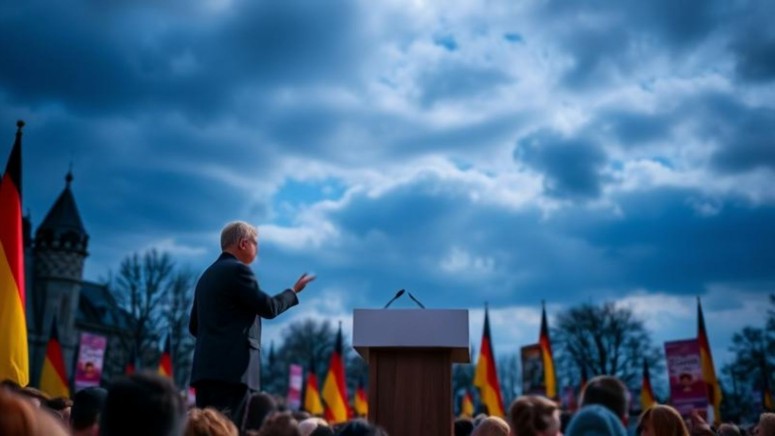
Pro-Russian Disinformation Campaign Targets German Politician Friedrich Merz Before Election
- Over 700 fake social media accounts created in December evolved from apolitical content to disinformation.
- The network disseminated posts that tried to say Friedrich Merz is subservient to the U.S. and other disinformation.
- Germany's likely next Chancellor was even associated with mass immigration under Angela Merkel.
A recent investigation has revealed a network of over 700 fake social media accounts spreading pro-Russian disinformation, aiming to undermine conservative frontrunner Friedrich Merz in Germany’s upcoming election.
Researchers linked to Germany's Robert Bosch Foundation disclosed that these accounts, collectively known as "Geist," have been actively disseminating anti-conservative and anti-war rhetoric in the final week of the election campaign.
The bot network employs artificial intelligence (AI) to generate images of Merz accompanied by messages critical of his support for Ukraine in its ongoing conflict with Russia, according to Reuters.
By portraying Germany as spiraling toward economic collapse—a scenario they claim can only be reversed by resuming energy imports from Russia—the campaign aligns with narratives favorable to pro-Russian policies.
Notably, most accounts were created in December and initially shared apolitical content. Their sudden pivot to targeted disinformation highlights the intent to interfere in the pivotal election scheduled for Sunday.
Merz, a strong advocate for providing military aid to Ukraine, has recently seen his lead narrow against the far-right Alternative for Germany (AfD) party. The AfD opposes support for Ukraine, advocating instead for reviving energy ties with Russia.
Germany's Information Security Office (BSI) has confirmed awareness of such tactics, and the federal government had previously warned that foreign actors would likely seek to influence the election. However, the identity of those behind the operation remains unclear.
While the campaign has had limited interaction so far, its scale underscores ongoing efforts by both foreign and domestic influencers to influence public opinion during a critical election. This election could determine Germany’s stance on Ukraine and its approach to broader fiscal reforms.
Similar posts have also tried to link Merz to controversial topics, portraying him as controlled by the U.S. or associating him with former Chancellor Angela Merkel’s immigration policies.
This incident adheres to a growing trend of AI-driven disinformation influencing democratic processes across the globe. While Russia’s embassy declined to comment, it has previously rejected allegations of meddling in foreign elections. Merz's office has also chosen not to respond publicly.
The results of Sunday’s election may have profound consequences, not only for Germany but also for the European Union’s support of Ukraine and its collective response to authoritarian influence campaigns.










